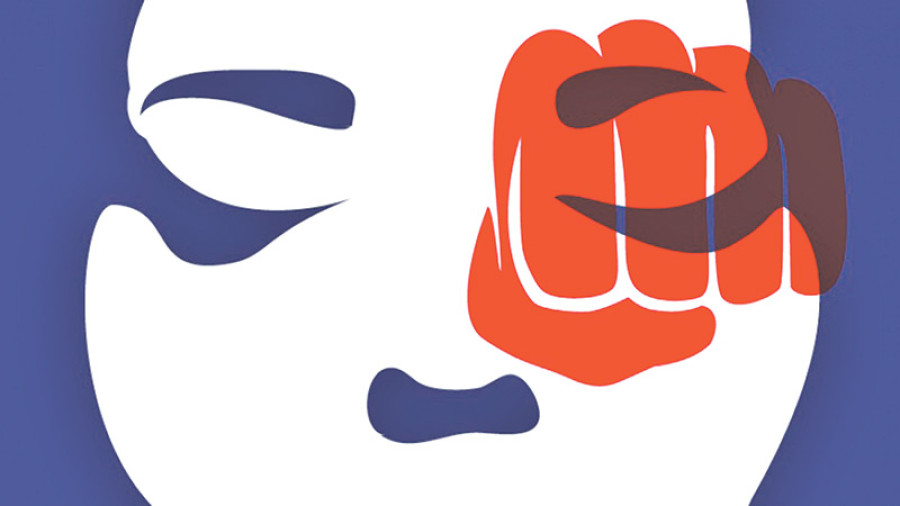Opinion
Leave no one behind
During our travels across Nepal, we have met many extraordinary people who are committed to working every single day, with compassion and strength, to tackle gender-based violence in its many forms.
Richard Morris & Rurik Marsden
During our travels across Nepal, we have met many extraordinary people who are committed to working every single day, with compassion and strength, to tackle gender-based violence in its many forms. It is difficult to name them all. But, we recognise the dedicated efforts many are making to tackle this issue: the Women’s Development Officers striving to eliminate child marriage in remote districts; the Nepal Police who are working to better respond to and prevent gender-based violence; the newly elected women leaders drawing attention to women’s issues; the civil society organisations providing shelter and support to the survivors of trafficking; and most importantly, the resilience and strength of the women and girls who have either faced such incidents of violence themselves or provided support to others.
The 16 Days of Activism on Gender-Based Violence is marked across the world, at every level of society—from government offices to community meeting places—from November 25 (International Day for the Elimination of Violence against Women) to December 10 (Human Rights Day) each year. It is an important opportunity to recognise what has already been achieved, and to recommit to addressing the challenges that remain.
Nepal can be proud of its progressive Constitution that does not permit discrimination on the basis of sex and advocates for special legal provisions to protect and advance the interests of women. Nepal’s recent decision to outlaw the practice of Chhaupadi (the banishing of women to huts during their menstrual periods) sends an important message of commitment to making the language in the Constitution an everyday reality.
However, a lot remains to be done. According to the Nepal Demographic Health Survey 2016, 22 percent of women in Nepal between the ages of 15-49 experienced physical violence while 7 percent have experienced sexual violence. But, sadly 66 percent never tell anyone about their experiences or seek help.
Through its work in Nepal, the UK Government aims to provide fair and equal opportunity to all, regardless of age, sex, caste and ethnicity. We are committed to ensuring that no one is left behind in our development efforts and believe that the most marginalised and poor need to be empowered and engaged in decisions that concern their lives. Working with a wide range of stakeholders under the leadership of the Government of Nepal, UK aid is supporting initiatives across a range of sectors. For example, our security and justice programme aims to reach 1.3 million women with security and justice services by 2020. The programme is working with the Nepal Police, the Ministry of Women and Children, and civil society organisations, to improve access to formal and informal security and justice services for vulnerable women. The UK’s Work in Freedom programme aims to ensure women migrants—both potential and returnees—are aware of work opportunities closer to home, as well as the risks of working in a foreign country, which include gender-based violence.
All our efforts strive to support the leadership of those determined people across Nepal which is working to bring an end to gender-based violence. It was good to see many of them at the film showing of “Sold”, which highlights the issue of trafficking, at our Embassy last Friday night. Ultimately, however, success will depend on all of us, as individuals, committing to achieving the high standards that Nepal sets for itself on this issue within its Constitution.
Morris is the British Ambassador to Nepal and Marsden is the Head of Office for the UK’s Department for International Development (DFID) in Nepal




 9.6°C Kathmandu
9.6°C Kathmandu










